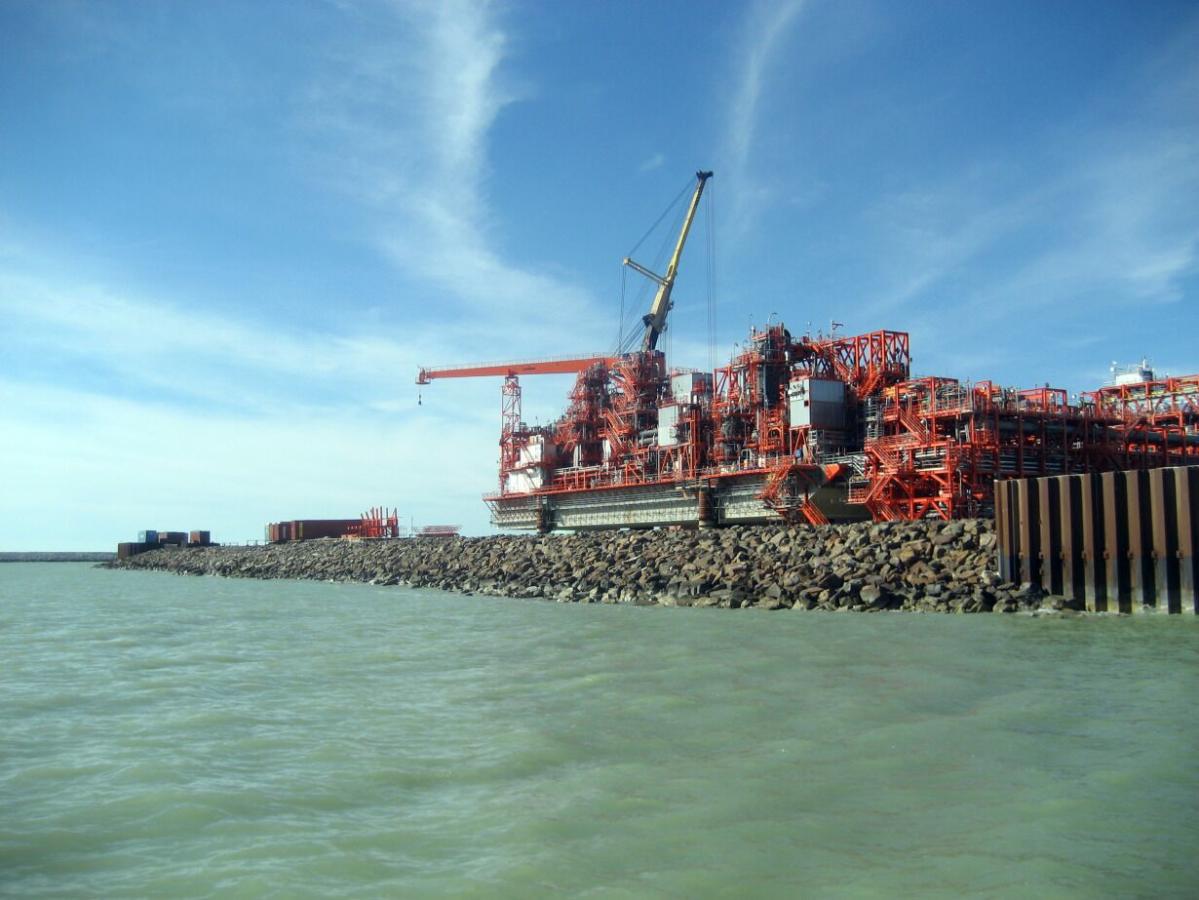(Bloomberg) — Kazakhstan has increased its arbitration claims against international oil companies that developed the Kashagan oil field to more than $150 billion, demanding compensation for lost revenue in addition to a dispute over costs, according to people familiar with the matter.
Most Read from Bloomberg
Kazakhstan’s government was already involved in a $15 billion arbitration over production costs at the giant field, which has been beset by delays, technical difficulties and cost overruns since development began more than 20 years ago. The additional claim is for as much as $138 billion in lost revenue, reflecting the calculation of the value of oil production that was promised to the government but not delivered by the field developers, the people said, asking not to be identified because the information isn’t public.
There is a further compensation claim related to contracts in the Kashagan development that were allegedly tainted by corruption, the people said.
The row underscores the difficulty of operating in Central Asia’s largest oil-producing nation, where major international companies face challenging environmental and geological conditions, plus a government that takes a robust approach to maximizing value from its production-sharing agreements.
Still, in earlier disputes with oil majors the government of Kazakhstan has demonstrated a certain degree of flexibility, on occasion settling for less than was initially claimed. Last year, the nation signaled it could consider resolving its disputes with the Kashagan partners through direct talks.
Companies including Eni SpA, Shell Plc, Exxon Mobil Corp. and TotalEnergies SE invested about $55 billion to develop Kashagan, which currently produces just under 400,000 barrels a day of oil. While the field was one of the biggest discoveries in decades, it also brought numerous technical challenges, from a sea that was frozen for almost half the year to a reservoir that contained high concentrations of poisonous gas.
Kashagan pumped its first oil in September 2013 — eight years later than targeted and $45 billion over its initial budget — only to shut down a month later after leaks were detected in a pipeline. Production resumed in 2016 and the field gradually reached output of much as 270,000 barrels a day in 2017. Eni, the lead developer in the project’s early stages, had estimated that Kashagan would reach a plateau in production of at least 1.5 million barrels of oil a day.
The North Caspian Operating Co., the joint venture that runs the project, said in a statement that it has as number of disputes concerning the application of certain provisions of the Kashagan production sharing agreement that are subject to arbitration.
“The contracting companies consider that they have acted in accordance with” that contract, according to the statement. NCOC declined to comment further due to the confidential nature of the proceedings.
Kazakhstan’s Energy Ministry declined to disclose any details of the disputes, saying that “this is a purely commercial dispute which the parties intend to resolve through arbitration procedures.”
“Eni confirms that an arbitration procedure has been commenced by the Kazakh authorities,” the company said in a statement. The Italian oil firm declined to comment on specific terms of the process, but said in general that it does not believe, “the basis for the claims or the specific amounts of compensation requested to be reasonably substantiated or credible.”
Shell declined to comment. Exxon referred questions to NCOC. TotalEnergies didn’t immediately respond to requests for comment.
Compensation Claims
Prior to the latest increase in claims, Kazakhstan was already alleging that the Kashagan partners should not have deducted $13 billion of costs from the revenue received by the government. That amount has now increased to $15 billion, the people said.
The companies are also facing a separate $5.1 billion fine for allegedly breaking environmental rules, after Kazakhstan’s court of appeal upheld government claims over sulfur storage.
The operator of the field has denied being at fault in the cases related to the environmental and cost claims.
Kazakhstan has been successful before in challenging the international majors for alleged failures at the country’s two largest oil developments. In 2020, Shell, Eni and their partners in the Karachaganak oil and gas venture paid $1.3 billion to settle a long-running dispute with the state over revenue sharing. In 2008, the Kashagan partners agreed to pay $5 billion to Kazakhstan and sell a larger stake in the venture to state-run KazMunayGas to settle a dispute over delays and cost overruns.
–With assistance from Laura Hurst, Francois de Beaupuy, Kevin Crowley and Alberto Brambilla.
(Updates with Kazakhstan energy ministry comment in 10th paragraph.)
Most Read from Bloomberg Businessweek
©2024 Bloomberg L.P.
